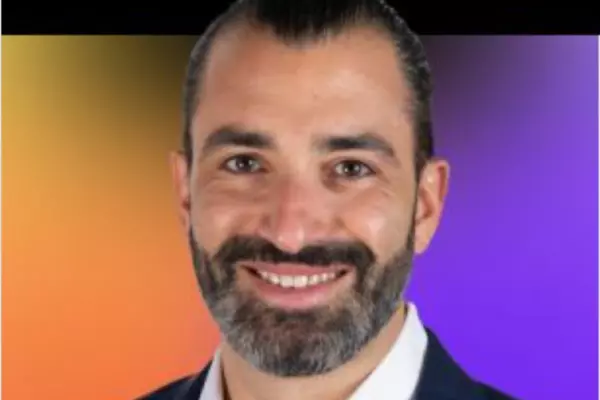BusinessDesk's investment editor, Frances Cook, responds to readers' emails on a weekly basis to answer your questions about money. Below you'll find her expert advice.
Hi Frances,
I know recently there was a lot of talk about banks being hard on people when they're applying for mortgages, by picking out things like takeaways and pet purchases.
It got me thinking about health costs since I see a psychologist at my own expense (not funded, unfortunately), so it usually costs me about $150 every three to four weeks.
Years ago, I had a bank worker make a strange comment about me checking the mental health box when I was applying for a different loan (because of insurance it asked health questions), and now I'm thinking about mortgages, I'm wondering if that's a red flag to a bank?
Do you think it's likely they will pick this out as an unnecessary health cost and will it affect my chances of getting a mortgage?
Not necessarily just for mental health services either, but for any "health" related costs that may seem non-urgent or people may struggle to get funding for.
Hope this makes sense!
Thanks
J
Hi J,
Great question. I would hope that this sort of spending wouldn’t count against you, but you just never know these days.
From the background conversations I've been having with people in the industry, the issue often seems to be whether the spending can be classed as "irresponsible". So, that's where services like UberEats might become a problem when you arguably could get the food in a cheaper way. Or subscriptions are a problem because they're a locked-in ongoing cost, which is why expenses like Spotify have become an issue.
A big part of the problem is that the rules are quite vague, so banks have to figure out what counts as irresponsible, and they're likely to be quite conservative when they're making that decision. However, I would argue that looking after your mental health is anything but irresponsible.
I reached out to some of the main banks to get an answer for you, and here’s what they had to say:
Kiwibank: At Kiwibank, rather than focusing on individual transactions or expenses as a reason for a credit decision, we base decisions on an overall affordability assessment which takes into account the customer’s total expenditure commitments when compared to their income.
Translation: It mostly matters that you’re sticking to your budget, and not spending more than you earn. Certain types of spending shouldn’t be a red flag (although be aware that almost all banks aren’t a fan of gambling or debt products like AfterPay).
ANZ: Changes to the Credit Contracts and Consumer Finance Act 2003 (CCCFA) do impose stricter duties on all lenders, including banks, around how they make inquiries and verify information to ensure lending to consumers is likely to be suitable and affordable. The rules around checking affordability, in particular, are very strict, and require all lenders to capture and check specific information about a customer’s income and expenses before granting them credit. That includes personal loans, home loans, home loan top-ups, credit cards, overdrafts, and increased credit limits.
The duties under the CCCFA require lenders to look at all regular and material expenses, including healthcare costs, as part of making an affordability assessment. Healthcare costs will be treated in the same manner as any other regular and material cost that a customer may have, and would have the same impact on an affordable assessment as any other cost regularly incurred by the customer.
We would note this relates to a mortgage application/assessment only and not insurance cover.
Translation: If you want any kind of debt from us, we legally have to thoroughly check that you can afford it. But we do this by checking how much you earn, versus how much you spend, and healthcare spending doesn’t raise any particular red flags. This might be different if you applied for insurance.
That last line is an important one. It seems that it doesn’t cause a problem for mortgages, but I have heard some very unfortunate stories of healthcare spending causing problems for insurance cover. That seems unfair to me, but the world is also often unfair. It can be very different depending on the types of insurance you’re after, and who the provider is, so if it did cause you problems in the future then do shop around.
Shopping around is another key point in this discussion. I know that, in quite a few cases, people have found they've been turned down for CCCFA reasons by one bank, but not another.
A good mortgage broker can often help you with this, because they know what each bank is putting a priority on that week. They can look at your situation and figure out which bank will be the friendliest.
The key, of course, is finding a good mortgage broker.
Ask around and see if any of your friends have worked with someone they thought was good. You can also make an appointment with two or three brokers, to see what they each recommend – it's free for you. The broker gets a commission from the bank if you decide to work with them.
I hope that helps, and good on you for making your mental health a priority.
Hi Frances,
I put an $85,000 or 10% deposit on an off-the-plan apartment in Auckland. It was my entire KiwiSaver balance, taken out near the market's peak last year. It's been in the developer's trust since then.
In a somewhat unsurprising turn of events, the developer is pulling the pin on the project because they haven't sold enough units. Assuming I get my money back, it may have a tiny bit of interest on there. The question is, what to do with this $85,000?
I'm a single woman in my early 30s. I don't know if I want to put the money straight onto a different property, although I probably could. I've been contracting rather than in full-time permanent work this year and spending everything I earn, so my finances won't look great to a bank. That said, I have a gift to add to this $85,000 which would take me past the 50% deposit mark on an $800,000 property).
If I keep it in cash, it's losing value by the day. I do have to return the deposit to my KiwiSaver provider, Simplicity. But putting it back into a fund seems risky when the market's on the way down and I don't know when I'm going to want to use this money.
I will probably want to buy somewhere in the next few years. So, I guess the question would be, what kind of fund should I go for (conservative or cash, if they have one), and what are your thoughts on buying a place in a cheaper city like Dunedin, paying it off in 10 years, renting it out and having that as security to live in eventually, if necessary – going the geo-arbitrage route.
I would be so grateful for your take on this!
Thank you for reading,
B
Hi B,
That’s a bummer that the development didn’t work out, because it can be a good way to get into the market as a first home buyer. Like you say, though, it’s possibly not surprising at the moment – quite a few developers are feeling the pinch of covid supply chain issues and labour shortages.
If they don’t sell the units quickly, developers are less likely than they once were to simply forge ahead and hope for the best.
When we’re weighing this up, it depends on how risky you’re feeling – and how flexible. You say you’d like to buy a property in the next few years but you don’t necessarily have a definitive timeline in mind. That gives us a few options, depending on how you’re feeling.
A general rule of thumb is that you don’t put money into shares unless you’re prepared to leave it there for at least five years. That’s because the share market goes up over time, but the line is quite jagged, jumping up, down and sideways on its way there.
All signs point to us heading into a bear market, where values fall and stay down for a period of time. There’s also the possibility that we’re heading for a recession. If we use history to guide us, many bear markets last about a year, and when they come along with a recession, they tend to last a bit longer, on average about 18 months. Of course, that’s an average, so they can go on longer or be shorter than that.
So, it can be a good time to be investing in shares, as long as you are buying into something like a fund that reduces your risk by spreading your money around several different companies, and as long as you have time up your sleeve to wait for the recovery. These two points are really important.
It’s also important to remember that even if previous dips have lasted about 18 months, sometimes they’ll last longer, and there’s no way of knowing how long it could take this time around.
So, let’s say you’d like to try buying again in two years, but you’re not too worried if it ends up being four, five, or even a bit longer. It wouldn’t be ideal, but you’d be OK with it.
In that situation, you could look at putting your money back into a growth KiwiSaver fund. You’ll probably increase your deposit over the long term because you’ll buy in when prices are low, and be in the game and pulled upwards when prices go back up. The penalty for you is that you'll need to accept you won’t have much control over your timeline and might end up waiting longer than you planned.
What if that doesn’t appeal? What if you’d like to buy a house right now, but maybe not an Auckland apartment? After all, you did just get what sounds like an incredibly generous gift that could take you over the 50% deposit mark for an $800,000 property. That’s a fantastic nest egg to have at your disposal and might mean that you don’t have to use your KiwiSaver at all.
KiwiSaver does come with strings attached. You can’t use it for buying an investment property; you have to live in the house for at least six months after you buy it. So, it would be difficult to use it to buy in a cheaper region that you intend to move to later. However, if you use that gift by itself, and leave your KiwiSaver alone, then maybe you could do that. For investment properties, you need a 40% deposit. That could be possible if you’re buying in a cheaper area.
If you have a big lump sum like that, the bank might also relax a bit about things like your spending, and your employment being contract work. For self-employed people, the bank typically wants to see two years of earnings history, which can be a bit painful to provide.
You might also want to tighten up your spending for the three months before you apply for a mortgage, avoiding gambling, AfterPay, or just “spending irresponsibly” in that time. Banks will typically go back over three months of your spending history, but it can be a surprisingly short period of time when you’ve got a goal in mind.
The third possibility is a compromise. Use this option if you’d like to buy in a couple of years, for sure, and without being held hostage to the whims of the share market.
There are conservative KiwiSaver funds and growth funds, but there's also a middle option, of balanced funds. These hold some shares and some cash, but also more intermediate investments like bonds.
Bonds give you more than a cash savings account would, but less than shares. The upside is that they’re far more reliable, with a set schedule of how much they’ll give you back, and when.
A balanced fund would likely give you higher returns than a conservative fund and be less unpredictable than a growth fund. If you definitely want to buy a house within a couple of years, I’d consider that.
So, which of the three options is the best one?
It really depends on what works best for the future you imagine for yourself. If you’re feeling torn and still can’t decide, I’d get in touch with your KiwiSaver provider for some individual advice.
You pay them fees to look after your money, and part of the deal is that they’re meant to be able to help you figure out the best course of action at times like this. I hear good things about Simplicity’s customer service, so I would flick them an email if you’re still unsure.
Good luck – you’re in a pretty good position, whichever you pick!
Send questions to [email protected] if you want to be featured in the column. Emails should be about 200 words, and we won't publish your name. Unfortunately, Frances is not able to respond to every email received, or offer individual financial advice.
Information in this column is general in nature, and should not be taken as individual financial advice. Frances Cook and BusinessDesk are not responsible for any loss a reader may suffer.














